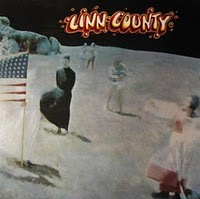 I owned this album for a long while before I got around to playing it… uh, dumb move. I’d passed it over because I thought it was generic, “sweaty,” late sixties blues rock. And, though I like sweaty sixties white guy blues, I can only take so much so often! So, randomly, I finally tossed this on expecting to play it through as background once then file it away as I do (when it comes to certain styles)… uh… well, it IS blues rock, and sweaty, but its progressive blues with some heavy, very cool nods to sike. It’s sike is West Coast sixties genius, but it also plays a bit like later Graham Bond without all the occult mysticism and no African flecked jazz. That said, there is a blues jam in the middle of the record thats tortured and whatnot, BUT the interplay of horns, Hammond, and the song writing makes for some super catchy, and… it’s kinda DANCEABLE!? What progressive blues album can you say THAT about? –Nipper
I owned this album for a long while before I got around to playing it… uh, dumb move. I’d passed it over because I thought it was generic, “sweaty,” late sixties blues rock. And, though I like sweaty sixties white guy blues, I can only take so much so often! So, randomly, I finally tossed this on expecting to play it through as background once then file it away as I do (when it comes to certain styles)… uh… well, it IS blues rock, and sweaty, but its progressive blues with some heavy, very cool nods to sike. It’s sike is West Coast sixties genius, but it also plays a bit like later Graham Bond without all the occult mysticism and no African flecked jazz. That said, there is a blues jam in the middle of the record thats tortured and whatnot, BUT the interplay of horns, Hammond, and the song writing makes for some super catchy, and… it’s kinda DANCEABLE!? What progressive blues album can you say THAT about? –Nipper
Rock
Thin Lizzy “Fighting” (1975)
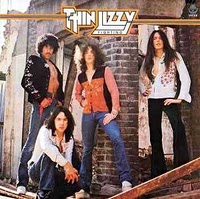 My favourite Thin Lizzy album. Which puts me in a minority, for sure, but I shouldn’t have to defend my assertion that this is hookier than Jailbreak (even if it doesn’t reach that one’s highest heights), more consistent than Johnny the Fox, and retains the sleazy feel that’s more or less buffed away from the overly polished Bad Reputation. This is their most underrated album by far. All the elements of the sound for which they’re best known (twin guitar attack, tense aggression, funky basslines, soulful melodicism and lyricism, etc., pick your cliché) are here in the freshest form; none of the cold metal posturing has crept in; and just about every song has an excitement that’s infectious and totally addictive, especially “Rosalie,” which is rock ‘n’ roll manna. –Will
My favourite Thin Lizzy album. Which puts me in a minority, for sure, but I shouldn’t have to defend my assertion that this is hookier than Jailbreak (even if it doesn’t reach that one’s highest heights), more consistent than Johnny the Fox, and retains the sleazy feel that’s more or less buffed away from the overly polished Bad Reputation. This is their most underrated album by far. All the elements of the sound for which they’re best known (twin guitar attack, tense aggression, funky basslines, soulful melodicism and lyricism, etc., pick your cliché) are here in the freshest form; none of the cold metal posturing has crept in; and just about every song has an excitement that’s infectious and totally addictive, especially “Rosalie,” which is rock ‘n’ roll manna. –Will
U2 “Achtung Baby” (1991)
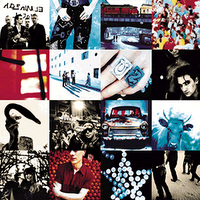 From the opening seconds of “Zoo Station,” Achtung Baby announces itself with a roaring crunch, signaling the end of the earnest U2 of the ‘80s. Between the Edge’s snarling, textured guitars and Adam Clayton’s blood-pumping basslines, Bono’s mood careens from sarcastic and playful to heartbroken and hung-over. Fans were immediately deeply divided, deciding that the band was either brilliant or out of their collective gourd. Nearly two decades later, the album is considered a masterpiece, packed with classics like “Mysterious Ways,” “Until the End of the World,” and fan-favorite “Ultraviolet (Light My Way).” (And let’s not forget “One,” the beautifully ambiguous piece considered by many to be the best song of the ‘90s.) If you’re among the masses who believe U2 to be nothing more than the Irish fathers of Coldplay, take a listen. I guarantee you’ve never heard this side of Bono and the boys. – Reilly
From the opening seconds of “Zoo Station,” Achtung Baby announces itself with a roaring crunch, signaling the end of the earnest U2 of the ‘80s. Between the Edge’s snarling, textured guitars and Adam Clayton’s blood-pumping basslines, Bono’s mood careens from sarcastic and playful to heartbroken and hung-over. Fans were immediately deeply divided, deciding that the band was either brilliant or out of their collective gourd. Nearly two decades later, the album is considered a masterpiece, packed with classics like “Mysterious Ways,” “Until the End of the World,” and fan-favorite “Ultraviolet (Light My Way).” (And let’s not forget “One,” the beautifully ambiguous piece considered by many to be the best song of the ‘90s.) If you’re among the masses who believe U2 to be nothing more than the Irish fathers of Coldplay, take a listen. I guarantee you’ve never heard this side of Bono and the boys. – Reilly
Be Bop Deluxe “Axe Victim” (1974)
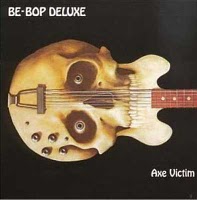 As mentioned in all other assessments of this album, the influence of Ziggy Stardust permeates Axe Victim from Bill’s Bowiesque mullet down to the freeze-dried production, self-mythologizing content and plasticized space-age musical character of the songs. However, beneath it’s glam-bandwagoning lies an imaginative album that’s easy to enjoy if you’re able to lower the blinders to it’s Ziggy impersonations, while guitar hero worshipers will find in Nelson’s hyperactive cascades of fuzz an idol worthy of praise. Highlighted in the “Rock & Roll Suicide” inspired urban wasteland of “Adventures in a Yorkshire Landscape,” the axe-victimizing epic “Jets at Dawn,” anthemic “Jet Silver and the Dolls of Venus,” and shadowy orchestrated closer “Darkness,” Nelson and his Be Boppers turn in a set of over-literate but oddly engaging tracks whose charms are probably easier to appreciate given three decades of glam dormancy. Inevitably, Nelson would call an audible and leave Axe Victim a curious footnote to his prolific career, but it’s a forgotten son worth getting reacquainted with. –Ben
As mentioned in all other assessments of this album, the influence of Ziggy Stardust permeates Axe Victim from Bill’s Bowiesque mullet down to the freeze-dried production, self-mythologizing content and plasticized space-age musical character of the songs. However, beneath it’s glam-bandwagoning lies an imaginative album that’s easy to enjoy if you’re able to lower the blinders to it’s Ziggy impersonations, while guitar hero worshipers will find in Nelson’s hyperactive cascades of fuzz an idol worthy of praise. Highlighted in the “Rock & Roll Suicide” inspired urban wasteland of “Adventures in a Yorkshire Landscape,” the axe-victimizing epic “Jets at Dawn,” anthemic “Jet Silver and the Dolls of Venus,” and shadowy orchestrated closer “Darkness,” Nelson and his Be Boppers turn in a set of over-literate but oddly engaging tracks whose charms are probably easier to appreciate given three decades of glam dormancy. Inevitably, Nelson would call an audible and leave Axe Victim a curious footnote to his prolific career, but it’s a forgotten son worth getting reacquainted with. –Ben
Terry Reid “Terry Reid” (1969)
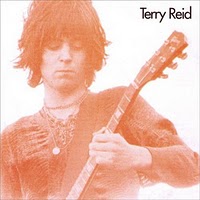 The big deal about Terry Reid is, as legend has it, he was offered, and declined, Robert Plant’s vocalist spot in the New Yardbirds, a group thereafter known as the Led Zeppelin. If you can get past a missed Zeppelin connection and dig his action you’ll understand why he did not need to consider jumping into some upstart and unproven group of New Yardbirds! His voice, flat out, is a powerhouse, and on this, his second album, Terry Reid, is full of heat…he out sings Lorraine Ellison on her classic “Stay With Me Baby”…his voice is simply great, as in great BIG. Even as he’s obviously affected by Steve Marriott (Small Faces) and the Reid vs Plant case COULD be made, Reid’s phrasing is much less Plant’s wholesale Marriott mimic. He has a pleading voice…brimming with feeling that just soars…this is an excellent album by an underrated, and relatively unknown heavy. –Nipper
The big deal about Terry Reid is, as legend has it, he was offered, and declined, Robert Plant’s vocalist spot in the New Yardbirds, a group thereafter known as the Led Zeppelin. If you can get past a missed Zeppelin connection and dig his action you’ll understand why he did not need to consider jumping into some upstart and unproven group of New Yardbirds! His voice, flat out, is a powerhouse, and on this, his second album, Terry Reid, is full of heat…he out sings Lorraine Ellison on her classic “Stay With Me Baby”…his voice is simply great, as in great BIG. Even as he’s obviously affected by Steve Marriott (Small Faces) and the Reid vs Plant case COULD be made, Reid’s phrasing is much less Plant’s wholesale Marriott mimic. He has a pleading voice…brimming with feeling that just soars…this is an excellent album by an underrated, and relatively unknown heavy. –Nipper
The Band “Stage Fright” (1970)
 It’s from the opening track that this is a faster, looser Band. “Strawberry Wine” is a quick, clumsy, lighthearted song—hardly “Tears of Rage,” that’s for sure. And there are plenty of such moments here, where the Band is honky tonkin’ their way through casual structures and tossed-off lyrics. The production, too, is a long way from the artfully rustic atmospheres of their previous two releases, but what the songs lose in aesthetic distinction they gain in punchy immediacy courtesy of engineering and mixing more typical of the time (by Todd Rundgren and Glyn Johns, respectively). Still, this is the Band, so don’t expect anything big and shiny. But I’ve made it sound like this is nothing special. It really is a terrific record, with at least half of the songs worthy of their prior efforts (“Sleeping,” “Time to Kill,” “The W.S. Walcott Medicine Show,” “The Rumor,” and the title track)—and fans of their two masterpieces will surely find things to love about this one; while those put off by the less-than-rawkous qualities of those albums might find this one’s breezier and (relatively) raunchier style more appealing—certainly more accessible. –Will
It’s from the opening track that this is a faster, looser Band. “Strawberry Wine” is a quick, clumsy, lighthearted song—hardly “Tears of Rage,” that’s for sure. And there are plenty of such moments here, where the Band is honky tonkin’ their way through casual structures and tossed-off lyrics. The production, too, is a long way from the artfully rustic atmospheres of their previous two releases, but what the songs lose in aesthetic distinction they gain in punchy immediacy courtesy of engineering and mixing more typical of the time (by Todd Rundgren and Glyn Johns, respectively). Still, this is the Band, so don’t expect anything big and shiny. But I’ve made it sound like this is nothing special. It really is a terrific record, with at least half of the songs worthy of their prior efforts (“Sleeping,” “Time to Kill,” “The W.S. Walcott Medicine Show,” “The Rumor,” and the title track)—and fans of their two masterpieces will surely find things to love about this one; while those put off by the less-than-rawkous qualities of those albums might find this one’s breezier and (relatively) raunchier style more appealing—certainly more accessible. –Will
Randy Newman “12 Songs” (1970)
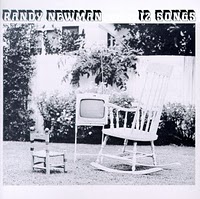 For me this was and still remains Randy Newman’s high water mark as a recording artist, the style and sound of the whole LP is sparse and as such rather menacing which suits the subject matter of these songs down to a tee but what makes this stand above other Newman classics (Sail Away, Good Old Boys, Trouble In Paradise) is that not before or since 12 Songs has Newman so convincingly stepped inside the skins of his dark, delusional characters, added to the fact there is not a single bad track on the whole record this stands for me as Neman’s Classic. –Derek
For me this was and still remains Randy Newman’s high water mark as a recording artist, the style and sound of the whole LP is sparse and as such rather menacing which suits the subject matter of these songs down to a tee but what makes this stand above other Newman classics (Sail Away, Good Old Boys, Trouble In Paradise) is that not before or since 12 Songs has Newman so convincingly stepped inside the skins of his dark, delusional characters, added to the fact there is not a single bad track on the whole record this stands for me as Neman’s Classic. –Derek
The Monks “Black Monk Time” (1966)
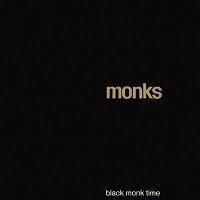 The story of the Monks is almost that of urban legend. Five U.S. G.I.s stationed in Germany in the 1960’s, decide to go AWOL from the military, begin dressing as monks and record an album of some of the most avant-garde rock n roll ever. Yes, it almost sounds too good to be true. I had heard the tale of these Monks when I picked up this wild little gem and it certainly lived up to the legend. Twelve amazingly off-kilter garage rock tunes that will surely grab your attention. The album starts of with “Monk Time” the band’s anthem and call to arms. The singer screams and squeals his montra of peace and rock n roll and invites you to become a monk and rock n roll with them. The album then kicks into gear with the raucous stomper “Shut Up” and the dancable organ-fueled “Boys Are Boys and Girls Are Choice”. The album then gets even more wild with the goofy but cathy “Higgle-Dy-Piggle-Dy” with its yodeling falseto. The album then takes a dark turn on the track “I Hate You” which is as menacing as the name implies. Just when the Monks got ya down, they bring you right back up a string of amazing garage rock rave ups. “Oh, How To Do Now” is the band’s most freakbeat dance song, with its great organ sound and catchy chorus, then the stomping sound of “Complication” slows it down a touch just before you’re treated to the wonderful “We Do Wei Du” and the amazingly sparatic “Drunken Maria” with its great call and response chorus. “Love Came Tumblin Down” is probably the Monks’ most straight forward song, with its standard singing style (no yelling, chanting or yodeling) it’s still a great song. The album then ends with “Blast Off” and “That’s My Girl”. All in all, this is a very cool, unique, bizzare and fun record. Anyone looking to hear some great 60’s garage rock that definitely isn’t from the standard mold, should seek out this obscure freaky classic. –KAM
The story of the Monks is almost that of urban legend. Five U.S. G.I.s stationed in Germany in the 1960’s, decide to go AWOL from the military, begin dressing as monks and record an album of some of the most avant-garde rock n roll ever. Yes, it almost sounds too good to be true. I had heard the tale of these Monks when I picked up this wild little gem and it certainly lived up to the legend. Twelve amazingly off-kilter garage rock tunes that will surely grab your attention. The album starts of with “Monk Time” the band’s anthem and call to arms. The singer screams and squeals his montra of peace and rock n roll and invites you to become a monk and rock n roll with them. The album then kicks into gear with the raucous stomper “Shut Up” and the dancable organ-fueled “Boys Are Boys and Girls Are Choice”. The album then gets even more wild with the goofy but cathy “Higgle-Dy-Piggle-Dy” with its yodeling falseto. The album then takes a dark turn on the track “I Hate You” which is as menacing as the name implies. Just when the Monks got ya down, they bring you right back up a string of amazing garage rock rave ups. “Oh, How To Do Now” is the band’s most freakbeat dance song, with its great organ sound and catchy chorus, then the stomping sound of “Complication” slows it down a touch just before you’re treated to the wonderful “We Do Wei Du” and the amazingly sparatic “Drunken Maria” with its great call and response chorus. “Love Came Tumblin Down” is probably the Monks’ most straight forward song, with its standard singing style (no yelling, chanting or yodeling) it’s still a great song. The album then ends with “Blast Off” and “That’s My Girl”. All in all, this is a very cool, unique, bizzare and fun record. Anyone looking to hear some great 60’s garage rock that definitely isn’t from the standard mold, should seek out this obscure freaky classic. –KAM
The Quick “Mondo Deco” (1976)
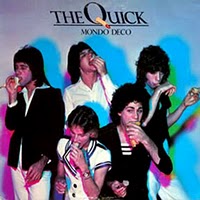 The Quick’s 1976 debut, and only, LP is hands down, no arguing allowed, the best powerpop album ever recorded. Song after song, side after side, this record delivers on so many levels it’s almost comical. Danny Wilde’s (yes, THE Danny Wilde from the Rembrandts who penned the ultra annoying ‘Friends’ theme song..) vocals are so high pitched they occasionally make Russell Mael from Sparks sound like Bowser from Sha-na-na. The guitar tone is pure glitter/punk and the drums and keyboards are trashy and pounding. Lovingly produced by Earle Mankey (Sparks, Dickies, 20/20, Paley Brothers) and Kim Fowley (everyone else in L.A.), this record truly is the sound of glitter and punk, on speed, colliding in the heat of Los Angeles. The lyrics are that perfect mix of gum chewing, over sexed, punk smartass and theater major, that somehow, when sang in a 14 year old girl falsetto, sound even more manly..(scientists are still scratching their heads at this phenomena…). Out of print for years on vinyl, and never legitimately issued on cd (aren’t major labels SO COOL??!!), masterpieces like this LP and Milk and Cookies one and only LP are finally available. Fans of old punk take note, the Dickies classic ‘pretty please me’ is a Quick cover. Between the shimmering beauty of Kimono My House and the golden pop culture trash heap that are the the first two Dickies LP’s lies this diamond. It does not need appraisal, its cuts speak for itself. –Richard
The Quick’s 1976 debut, and only, LP is hands down, no arguing allowed, the best powerpop album ever recorded. Song after song, side after side, this record delivers on so many levels it’s almost comical. Danny Wilde’s (yes, THE Danny Wilde from the Rembrandts who penned the ultra annoying ‘Friends’ theme song..) vocals are so high pitched they occasionally make Russell Mael from Sparks sound like Bowser from Sha-na-na. The guitar tone is pure glitter/punk and the drums and keyboards are trashy and pounding. Lovingly produced by Earle Mankey (Sparks, Dickies, 20/20, Paley Brothers) and Kim Fowley (everyone else in L.A.), this record truly is the sound of glitter and punk, on speed, colliding in the heat of Los Angeles. The lyrics are that perfect mix of gum chewing, over sexed, punk smartass and theater major, that somehow, when sang in a 14 year old girl falsetto, sound even more manly..(scientists are still scratching their heads at this phenomena…). Out of print for years on vinyl, and never legitimately issued on cd (aren’t major labels SO COOL??!!), masterpieces like this LP and Milk and Cookies one and only LP are finally available. Fans of old punk take note, the Dickies classic ‘pretty please me’ is a Quick cover. Between the shimmering beauty of Kimono My House and the golden pop culture trash heap that are the the first two Dickies LP’s lies this diamond. It does not need appraisal, its cuts speak for itself. –Richard
Captain Beefheart “Safe as Milk” (1967)
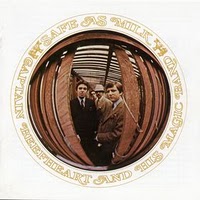 The debut album, “Safe as Milk,” begins to showcase the genius of Don Van Vliet (aka Captain Beefheart). The band’s trademark sound is already here beginning with Beefheart’s voice, one of the most recognizable and individual instruments in music. Next, the lyrics, which are abstract to say the least! Finally the music, a sort of weird extension of the blues blended with elements of free jazz and rock. This debut really only hints at what’s to come but it remains one of Captain Beefheart’s most enjoyable and accessible albums. –Jon
The debut album, “Safe as Milk,” begins to showcase the genius of Don Van Vliet (aka Captain Beefheart). The band’s trademark sound is already here beginning with Beefheart’s voice, one of the most recognizable and individual instruments in music. Next, the lyrics, which are abstract to say the least! Finally the music, a sort of weird extension of the blues blended with elements of free jazz and rock. This debut really only hints at what’s to come but it remains one of Captain Beefheart’s most enjoyable and accessible albums. –Jon
You haven’t really lived until you’ve heard “Sure ‘Nuff ‘n Yes I Do,” “Zig Zag Wanderer,” “Dropout Boogie,” Abba Zaba,” and “Plastic Factory!” “Safe As Milk” may be Beefheart’s most accessible album but it’s still weirder than almost anything else from the time – save maybe The Deviants or The Monks. –David
Tubeway Army “Replicas” (1979)
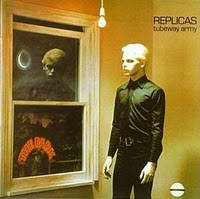 Numan’s best record is a dark and sleazy, yet oddly sensual and visionary album. The cold textures of the synthesizers are contrasted with crunchy rhythm guitar and punchy post-punk rhythms, properly making a virtue of the music’s simplicity to convey a stripped down sense of horror, alienation, and sordid pleasures. The bizarre lyrics have an imagistic quality that rounds out the mood and unifies the album beautifully. At least seven tracks here are classics: “Me! I Disconnect from You,” “Are ‘Friends’ Electric?,” “The Machman,” “Down in the Park,” “You Are in My Vision,” the title cut, and “It Must Have Been Years.” The final two tracks are moody instrumentals evocative of the diminishing humanity of the whole thing. Few hit records from the late-70s/early-80s are so unified and consistently compelling. And few synth-rock albums have such inviting textures. This is creepy post-punk that’s also as fun as a wad of bubble gum. Me! I recommend to you. –Will
Numan’s best record is a dark and sleazy, yet oddly sensual and visionary album. The cold textures of the synthesizers are contrasted with crunchy rhythm guitar and punchy post-punk rhythms, properly making a virtue of the music’s simplicity to convey a stripped down sense of horror, alienation, and sordid pleasures. The bizarre lyrics have an imagistic quality that rounds out the mood and unifies the album beautifully. At least seven tracks here are classics: “Me! I Disconnect from You,” “Are ‘Friends’ Electric?,” “The Machman,” “Down in the Park,” “You Are in My Vision,” the title cut, and “It Must Have Been Years.” The final two tracks are moody instrumentals evocative of the diminishing humanity of the whole thing. Few hit records from the late-70s/early-80s are so unified and consistently compelling. And few synth-rock albums have such inviting textures. This is creepy post-punk that’s also as fun as a wad of bubble gum. Me! I recommend to you. –Will
George Harrison “All Things Must Pass” (1970)
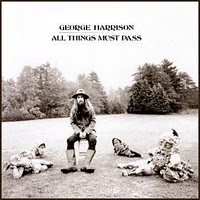 George Harrison emerges from the fractured Beatles with a winner on all fronts. The thing that struck me originally and keeps me coming back to All Things Must Pass is the huge, layered sound achieved by Phil Spector, wrapping the songs in a blanket that is cavernous and drafty, but awesomely lush as well. Tracks like “Let It Down”, “Art Of Dying”, and “Wah-Wah” are immense, echoing epics, while mellow cuts such as “I’d Have You Any Time”, “Run Of The Mill”, and “Behind That Locked Door” warm and inviting. Harrison lets his spirituality permeate the set of songs here, potentially a turn off, but his delivery is so affable and the songs so good that it only serves to unify and add substance the album as a whole. –Ben
George Harrison emerges from the fractured Beatles with a winner on all fronts. The thing that struck me originally and keeps me coming back to All Things Must Pass is the huge, layered sound achieved by Phil Spector, wrapping the songs in a blanket that is cavernous and drafty, but awesomely lush as well. Tracks like “Let It Down”, “Art Of Dying”, and “Wah-Wah” are immense, echoing epics, while mellow cuts such as “I’d Have You Any Time”, “Run Of The Mill”, and “Behind That Locked Door” warm and inviting. Harrison lets his spirituality permeate the set of songs here, potentially a turn off, but his delivery is so affable and the songs so good that it only serves to unify and add substance the album as a whole. –Ben


